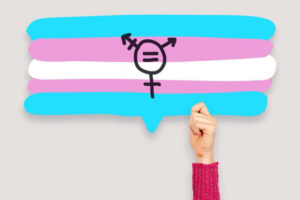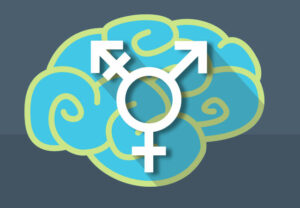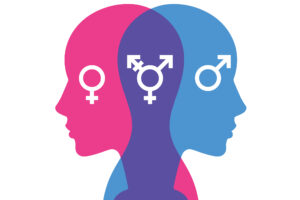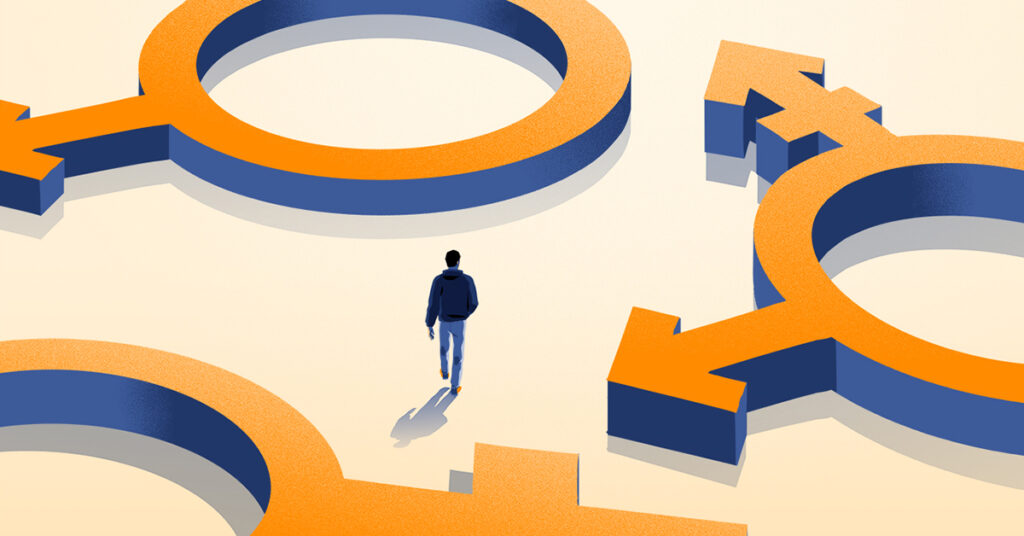As the word suggests, dysphoria is a state of discomfort or dissatisfaction. Dysphoria can be caused by many different things in life, but for transgender people, it’s often the result of being assigned one gender at birth when they identify with another. This article will discuss what dysphoria is and how to treat it.
What Is Dysphoria?
Dysphoria is a state of general dissatisfaction with life. It may be accompanied by feelings of depression, hopelessness, and fearfulness. Dysphoria often occurs as part of an underlying mood disorder such as bipolar disease or clinical depression. When dysphoria occurs alone, it is usually seen in people who are at risk for other mental health problems. This includes people with personality disorders and schizophrenia.
Dysphoria is a mental condition that causes someone to feel unhappy, lost, and/or confused. It can occur for many different reasons at any given time. In most cases, it is treated with psychotherapy or medication.
Different Types Of Dysphoria
There are three main types of dysphoria:
Gender Dysphoria
Gender dysphoria is when people are unhappy because their body isn’t the same as the gender they feel.
For example, some people are born biologically male but identify themselves as female; others are born biologically female but identify themselves as male.
Some people feel not comfortable with their private parts. They might not want to be a person of a certain gender.
Their discomfort can cause significant stress that interferes with normal life activities and relationships.
Causes Of Gender Dysphoria
- Until recently, it was thought that most cases of GID came from people who had mixed feelings about society’s assigned gender role for people based on their genitalia.
- However, it’s now believed that the origins of GID arise from a combination of biological and psychological factors such as:
- Differences in brain structures based on gender identity (most likely genetic)
- Upbringing and peer influences during childhood (such as parental support or rejection for dressing like another gender).
Sexual Orientation Dysphoria
Sexual orientation dysphoria also called homosexual panic or just gay panic, is a condition in which someone experiences distress because their sexual orientation differs from the norm or expectations for their sex assigned at birth.
For example, someone who is born as a male but identifies as a woman or vice versa might experience this type of feeling.
Causes Of Sexual orientation dysphoria
- It’s not yet clear what causes this type of distress. However, it might be because of social influences such as peer pressure or parental shaming for sexual preferences that are different from the norm.
- In addition, some people experience an underlying mental health condition such as clinical depression or anxiety disorder which can increase the risk of developing this type of dysphoria.
Clinical (Major) Depression
Major depressive disorder is an older term for major depression and it includes other mood disorders.
It’s one of the most common mental illnesses affecting more than 16 million adults every year. twice as many women as men – according to the research.
It’s a mood disorder that causes feelings of sadness and hopelessness that can last for weeks or months at a time.
People who suffer from major depression often seem sad, irritable, anxious, empty, hopeless, pessimistic, and/or have low self-esteem.
They may lose interest in activities they once enjoyed doing too.
Causes Of Clinical Depression
- There are multiple reasons why someone might develop this type of dysphoria including Genetic predisposition to mental illness
- Stressful life events such as the death of a loved one or financial problems
- Drug and alcohol use can lead to other addictions that worsen depression.
- People with major depressive disorder might have other conditions. Some conditions people have are PTSD, major anxiety disorders, schizophrenia, bipolar disease, substance abuse issues, ADHD, and borderline personality disorder.
Prevalence Of Dysphoria
 Based on the research, it is believed that people with gender dysphoria affect 0.005% to 0.014% of people or about one out of every 2000+ people for both men and women combined (and four times more common in females than males).
Based on the research, it is believed that people with gender dysphoria affect 0.005% to 0.014% of people or about one out of every 2000+ people for both men and women combined (and four times more common in females than males).
Sexual orientation dysphoria also called homosexual panic affects less than four percent of people in this country.
Depression is common. It affects almost 300 million people in the world, 20-30% of them suffer from a major depressive disorder. Depression is the number two cause of disability in the world.
Signs Of Dysphoria
 There is no one-size-fits-all answer to this question, as the signs and symptoms of dysphoria can vary depending on the person. However, some general signs that you may be experiencing distress because of your gender identity or sexual orientation include:
There is no one-size-fits-all answer to this question, as the signs and symptoms of dysphoria can vary depending on the person. However, some general signs that you may be experiencing distress because of your gender identity or sexual orientation include:
- Feeling like your body doesn’t match who you are inside Feeling like you were born into the wrong sex-role
- Wearing clothes that don’t feel like “you”
- Hating certain physical characteristics about yourself
- Wanting to change your appearance through hormones or surgery
- Having anxiety or depression related to your gender identity or sexual orientation
- Experiencing panic attacks due to thoughts or feelings about your gender identity or sexual orientation
- Avoiding social situations because they make you uncomfortable feeling out of place in either the male or female world
Causes Of Dysphoria
Dysphoria can be caused by a multitude of things, such as
Hormones & The Brain
The basis of dysphoria rests largely on the brain’s response to hormones. When a fetus is exposed to external hormones it can result in the development of different genitalia. The brain is also highly sensitive to hormones and their fluctuations. In one study, it was found that when male rats were exposed to estrogen (a hormone typically produced by females) there was a reduction in the number of cells that produce dopamine in the brain. Dopamine is a neurotransmitter responsible for motivation, pleasure, and reward. It is thought that when there is a decrease in dopamine levels, it can result in feelings of dysphoria.
Genetics

There is evidence to suggest that genetics also play a role in the development of dysphoria. Studies have shown that transgender individuals are more likely to have family members who also identify as transgender. This suggests that there may be a genetic component to dysphoria. However, it is still not fully understood what role genetics play in the development of dysphoria.
Environment
It is also thought that the environment can play a role in the development of dysphoria. Transgender individuals are more likely to experience abuse, neglect, and bullying which may contribute to dysphoria. There is no known cause of transsexualism, but there are certain risk factors that increase the chances of developing it.
Risk Factors Of Dysphoria
There are a variety of risk factors associated with dysphoria. Some of these include:
- Genetic predisposition to mental illness- if someone has a family history of mental health conditions, they are at an increased risk for developing dysphoria themselves.
- Environmental stressors such as the death of a loved one, financial problems, or other traumatic life events can trigger or worsen symptoms of dysphoria.
- Drug and alcohol abuse can also lead to other addictions that make depression worse.
- Age- people who are younger (especially adolescents) seem to be more at risk for developing gender identity or sexual orientation-related issues than older adults.
- Gender identity- transgender individuals are much likely to experience dysphoria than cisgender individuals (individuals whose gender identity matches their birth sex).
Preventive Measures For Dysphoria
 There is no one way to prevent dysphoria for everyone. Different people have different ways to make themselves happier. But some things you can do are:
There is no one way to prevent dysphoria for everyone. Different people have different ways to make themselves happier. But some things you can do are:
- Developing a strong support system of family and friends who understand what you’re going through and can offer emotional support.
- Participating in activities or groups that make you feel connected and supported (such as LGBTQ+ groups, therapy groups, etc.)
- Get regular mental health checkups if you have a history of mental illness or are at risk for developing dysphoria.
- Avoiding drug and alcohol abuse which can worsen symptoms of dysphoria.
- Educating yourself about gender identity and sexual orientation issues.
- The more knowledgeable you are about these subjects, the less likely you may be to experience dysphoria.
Treatment Options
 There are a variety of therapy options available for people who experience dysphoria. Some of these include:
There are a variety of therapy options available for people who experience dysphoria. Some of these include:
- Cognitive-behavioral therapy (CBT)- CBT is a type of psychotherapy that focuses on helping people identify and change negative thoughts and behaviors that may be contributing to their mental health issues.
- This approach is effective in treating conditions such as depression, anxiety, bipolar disorder, and more.
- Support groups- joining a support group can be an effective way to connect with other individuals who understand what you’re going through and can offer helpful advice and support.
- Hormone therapy- hormone therapy helps transgender individuals transition into the gender they feel most comfortable with. This treatment involves taking hormones that keep a connection with the gender they identify as.
- Hormone therapy can help people who feel bad. Hormones can be good and bad at the same time. You should talk to your doctor about any risks before you start hormone therapy.
- Surgical interventions- for transgender people who wish to physically transition into their desired sex, there are surgical procedures available that can help them do this (including genital reconstruction surgery).
- Everyone is different when it comes to this treatment option. Talk to your doctor before deciding if it is right for you.
Coping Strategies
 The best coping strategies for dysphoria will vary from person to person. However, some helpful tips include:
The best coping strategies for dysphoria will vary from person to person. However, some helpful tips include:
- Identifying your triggers and working to avoid them or manage them when possible.
- Challenging negative thoughts and replacing them with more positive ones.
- Exercising regularly is been beneficial for mental health in general.
- Spending time with supportive people who make you feel good about yourself.
- Practicing self-care– this can include things like taking breaks when needed, eating a healthy diet, getting enough sleep, etc.
- If you are having trouble coping with dysphoria, it is okay to go see a therapist or counselor.
Conclusion
Dysphoria is a general state of unease that may occur because of an emotional or physical imbalance. It can also refer to feelings of depression, anxiety, and restlessness. There are many ways for dysphoric people to cope with their symptoms including medication and therapy. If you have any signs of feeling bad, go to the doctor. They can help you.
If you are looking for affordable Online Counseling MantraCare can help: Book a trial therapy session








